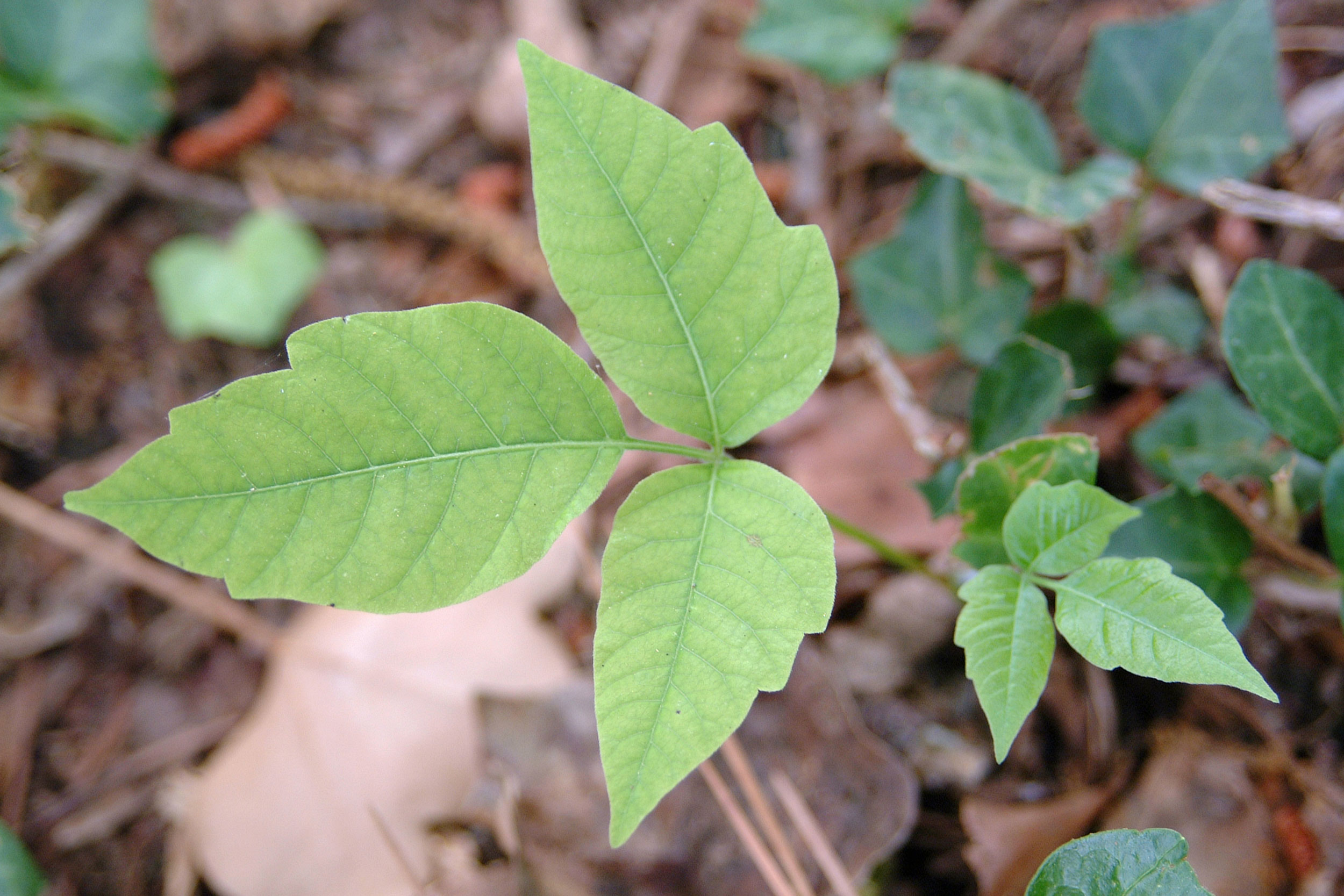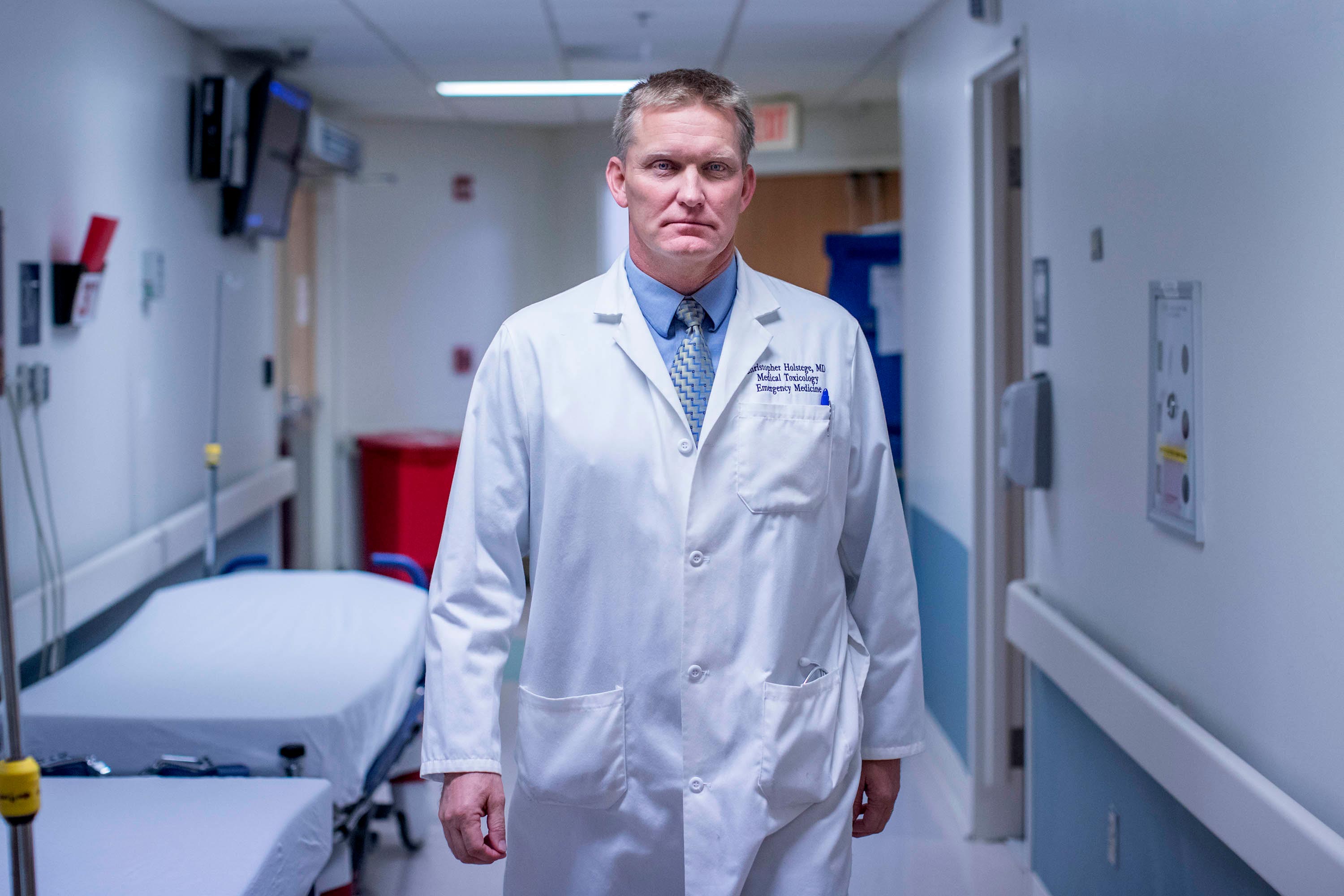Dr. Chris Holstege wears many hats at the University of Virginia. He is a professor of emergency medicine and pediatrics, chief of the School of Medicine’s Division of Medical Toxicology, director of the Blue Ridge Poison Center and executive director of the Student Health and Wellness Department.
He also participates in outdoor activities – hiking, backpacking, fly fishing – and teaches a wilderness medicine course for medical students.
With summer in high gear, UVA Today asked Holstege about safety in the outdoors, and about the mission of the Student Health and Wellness Center.
Q. What are some of the dangers of summer?
A. Tick bites, bee and wasp stings, heat exhaustion, snake envenomation, and injury while doing outdoor activities.
But we can focus on prevention, to minimize risk. Regarding ticks, consider wearing high boots and lightweight long pants. Spray insect repellant on your clothing and exposed skin, and consider wearing clothing treated with permethrin. As soon as you come inside, check yourself head to toe for ticks. Be sure to look for engorged ticks a day later to minimize the risk of getting Lyme disease, Rocky Mountain spotted fever and ehrlichiosis. Check unusual places on your body. Ticks will attach in odd places such as the skin in the ear canal, behind the ears, on the scalp between the hairs, and in the navel. Prevention is the key. Seek treatment if there is sign of infection, such as fever and flu-like symptoms. Tick-borne diseases usually are easily treated with antibiotics if caught early.
Heat waves, like the one we recently had, also are dangerous. Each year patients present to the Health System for heat exhaustion and heat stroke. Avoid exercise in the middle of the day; the best time to exercise is early in the morning, when it is cooler. If you’ve had a heat-related injury, you are more susceptible. When it’s exceptionally hot, don’t run in rural areas where help may not be readily available. Be sure to take breaks to cool down and keep hydrated.
I especially urge coaches to watch for heat exhaustion. Don’t over-push players when it’s hot. There are guidelines regarding this; follow the guidelines for the safety of your athletes. Make sure your kids get appropriate breaks.
Q. You’re a poison expert. What about poison ivy?
A. It’s important to learn what poison ivy looks like so you can avoid it. But it’s common in the woods and fields in Virginia, so if you go hiking, you’re likely to come in contact with it. Consider wearing high boots and lightweight long pants to avoid direct contact with the plant.

Study this photo carefully and avoid poison ivy on your hikes. (Photo credit: iStock)
When you come back from a trip to the woods, put your clothes in the washer to remove the plant’s sap that may have contacted your clothes. Also wash your hands and arms thoroughly with soap and rinse them well. You can consider products such as Zanfel, which removes urushiol, the toxin that causes skin reactions and helps to speed healing.
If you have a reaction to poison ivy, see your clinician for topical and perhaps oral steroids, which will help clear up the reaction more quickly. And stay away from the smoke of open burns in rural areas and sometimes neighborhoods. Smoke from poison ivy can cause allergic reactions to the skin and potentially dangerous reactions in the lungs.
Q. Wouldn’t it be easier to just stay inside and read a book about the outdoors?
A. Sure, there are dangers in the outdoors to be aware of. But driving to an outdoor site is statistically much more dangerous than the natural places you’re visiting.
We know from studies and personal experience that going out in nature is very good for our well-being. Overall, it’s safe and pleasant. The exercise from running, walking, bicycle riding is good for us. We just need to take precautions, just like wearing seatbelts when we get in a car. The benefits mentally, physically, emotionally of getting outside far outweigh the risks.
Take your kids outside, too. There are lifelong benefits to appreciating nature and engaging in outdoor activity.
Q. Please tell us a little about the Student Health and Wellness Center.
A. The University is constructing a new building and the planned programs are focusing on the overall well-being of our students, not just on reacting to health problems. The planned services will provide much more than a traditional infirmary treating minor afflictions.
The new building will include expanded areas for existing services associated with Medical Services, Counseling and Psychological Services, Student Disability Access Services and Health Promotion. It will also include significant space dedicated to wellness/wellbeing.
We are working with our students to help them live well-balanced lives. We encourage exercise, getting enough sleep, eating well and having good relationships. Our students are hard-working high-achievers who sometimes don’t create enough down time for themselves.
There are so many great activities at the University and in Charlottesville, such as the outdoors clubs, sports, music, and other artistic events. There’s really a group for nearly anything that interests you. We need to live a balanced life. We know that finding time for activities that we enjoy enables mental clarity, and that clarity actually improves productivity.
“We are working with our students to help them live well-balanced lives. … Our students are hard-working high-achievers who sometimes don’t create enough down time for themselves.”
- Dr. Chris Holstege
So we are getting more engaged with our students’ sense of well-being by encouraging their engagement with many aspects of life beyond simply achieving high grades. We should all get outside more and enjoy nature, each day, to the fullest.
President Jim Ryan has advocated a wonderful concept, that we can be “both great and good.” Great, as a University that is dedicated to excellence in such areas as education, research, innovation and service, and also good in the sense of caring for others through various pursuits; a moral imperative that so many people at UVA share.
Media Contact
Article Information
July 24, 2019
/content/qa-dr-chris-holstege-talks-summer-health-student-wellness

